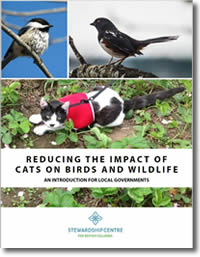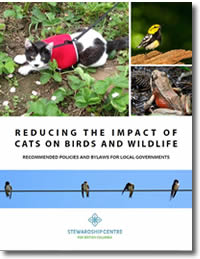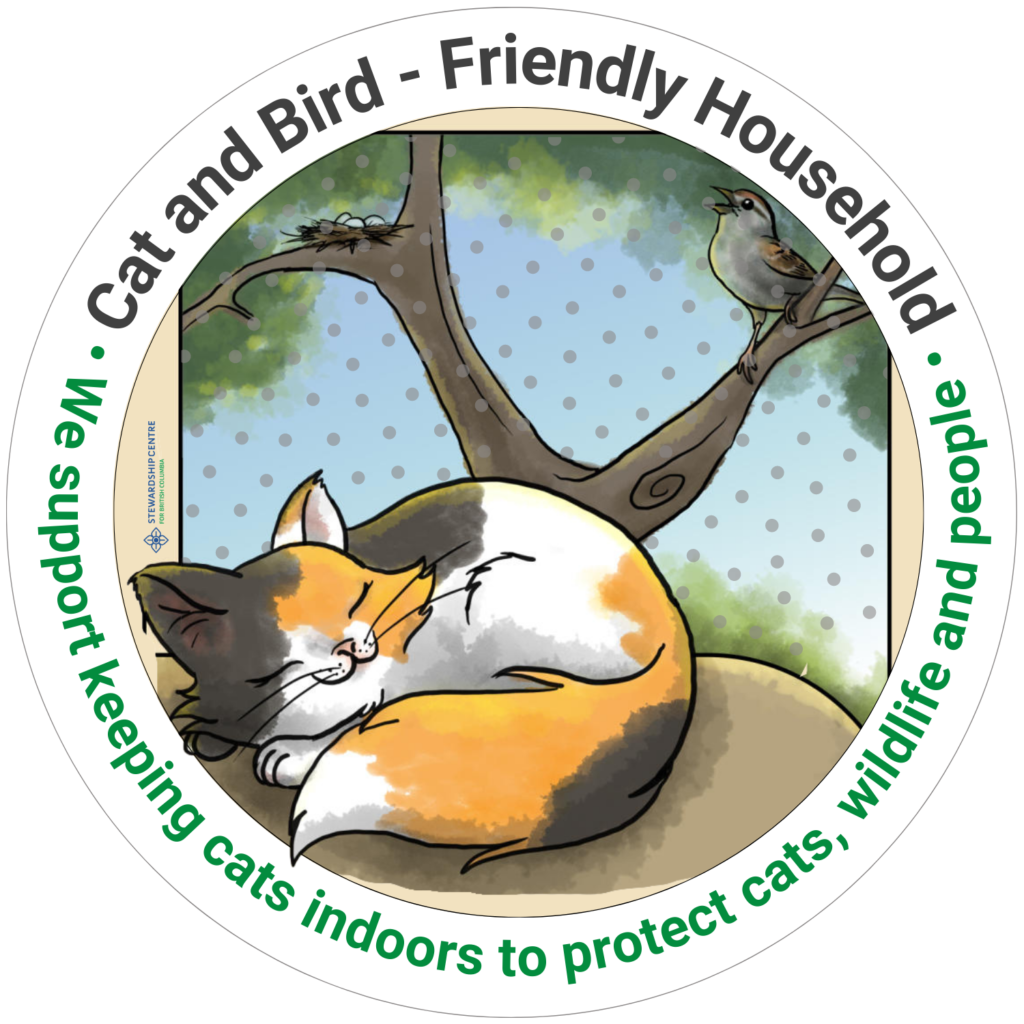Cats and Birds | For Local Government
Pet Control Bylaws
Most municipalities and regional districts in British Columbia have had dog control bylaws for years. Bylaws restrict dogs from roaming to protect domestic pets, wildlife, farm animals, and humans from injury.
Historically, cats have been allowed to roam because of an attitude that cats are independent and need to roam. However, with the increasing domestic and feral cat populations, it is time to consider a different approach.
It’s important that municipalities promote positive action for pet owners for the sake of good neighbor relations, environmental stewardship, and public health.
Multi-pronged approach
A multi-pronged approach is needed which includes:
- Public education about responsible pet ownership
- Bylaws to protect birds and other wildlife and to reinforce responsible pet practices
- Support to humane shelters and societies to help address the cat overpopulation crisis and its impact on birds and wildlife.
Resources available
The Stewardship Centre for BC has developed resources to assist local governments to implement best practices for responsible pet ownership and to protect birds and other wildlife.

A Briefing Note for Local Governments provides decision-makers with a summary of the issues related to cat predation of vulnerable bird and wildlife species and to provide some recommended actions to consider.

A Recommended Bylaws and Policies paper to address the impacts of roaming and feral cats on birds and other small wildlife.
Cat Bylaws Webinar
Hosted by the Stewardship Centre for BC, this webinar highlights animal control and responsibility bylaws with cat provisions and is presented by Anna Skurikhina (Cats and Birds Project Lead, Stewardship Centre for BC), Dr. Elizabeth Gow (Research Scientist at Environment and Climate Change Canada), Karen Robertson (Deputy Corporate Officer, City of Nanaimo) and Dave LaBerge (Director, Public Safety at the City of Nanaimo).




